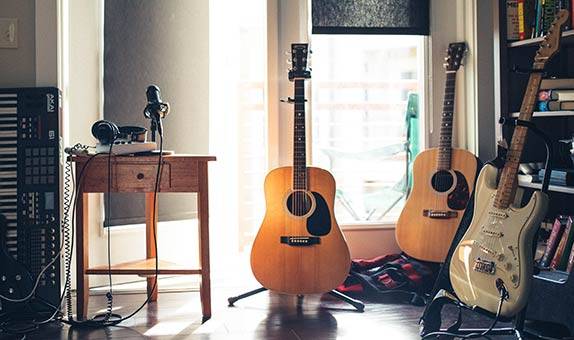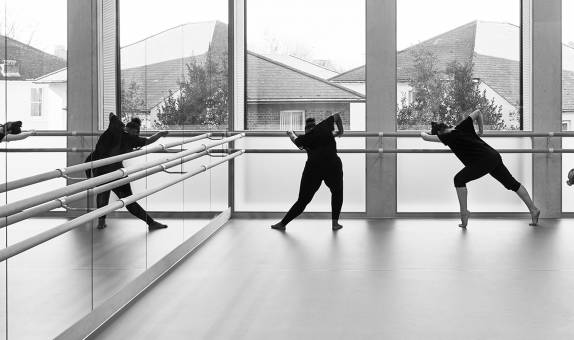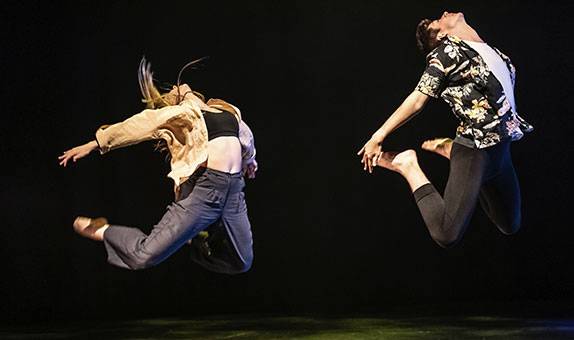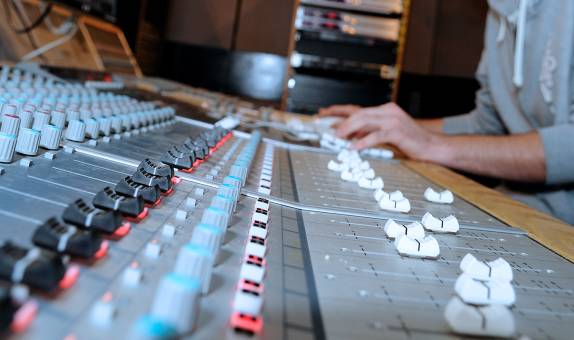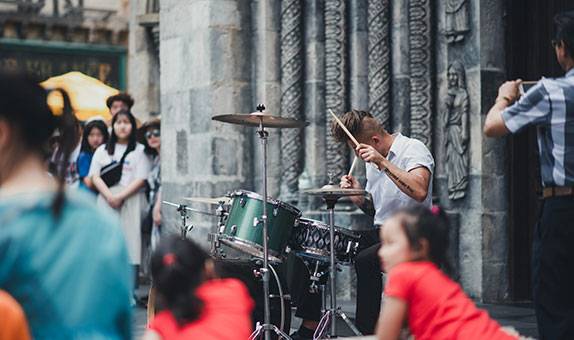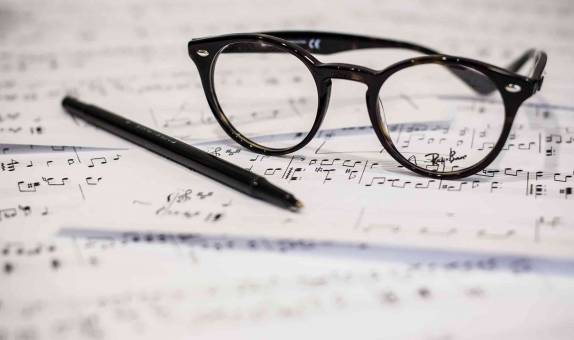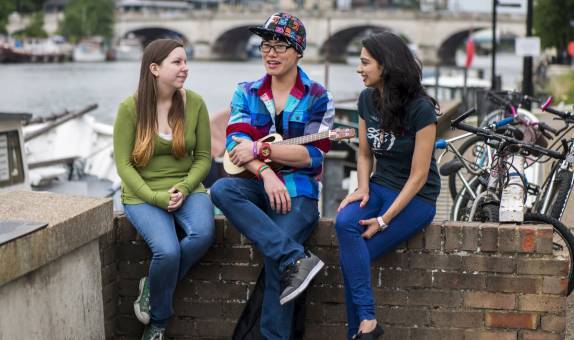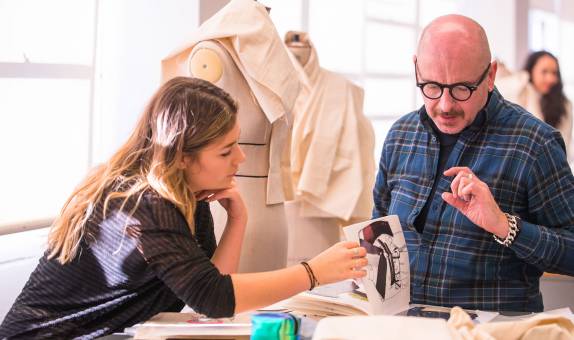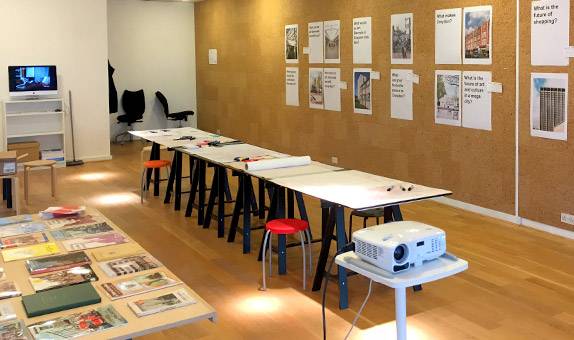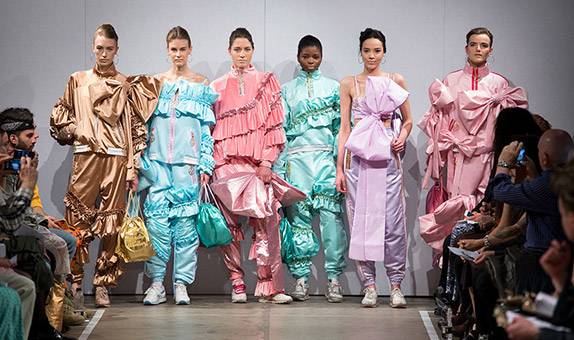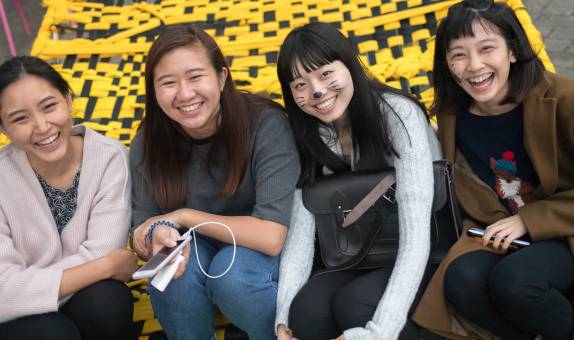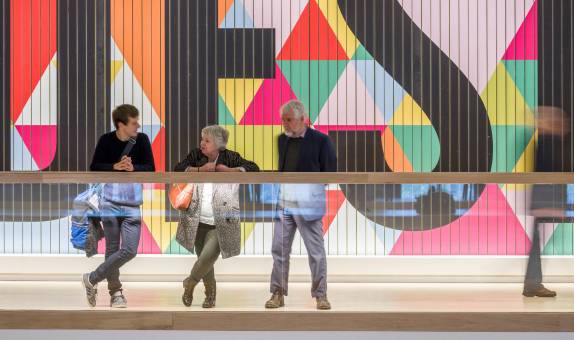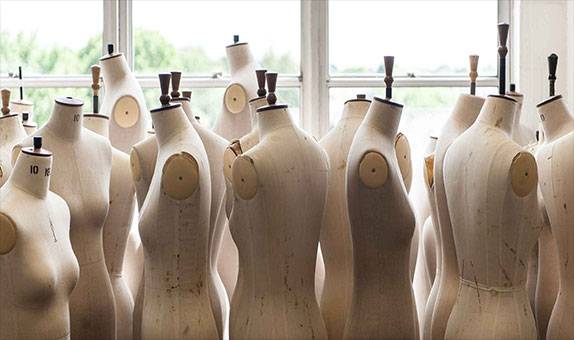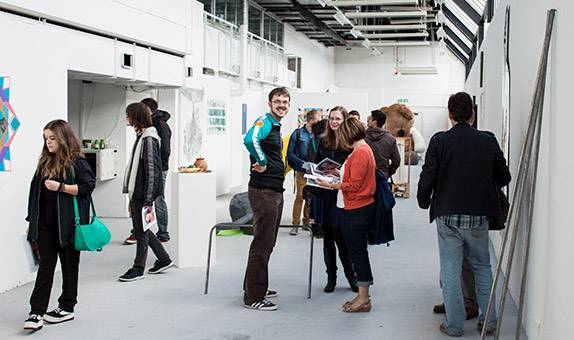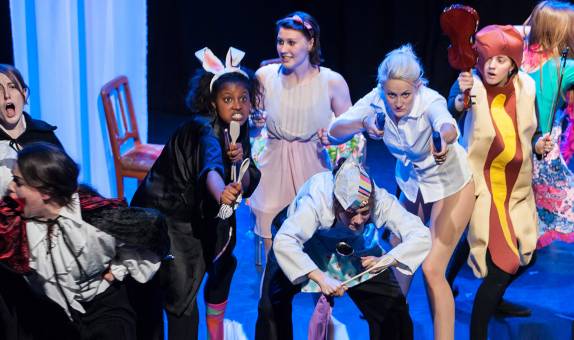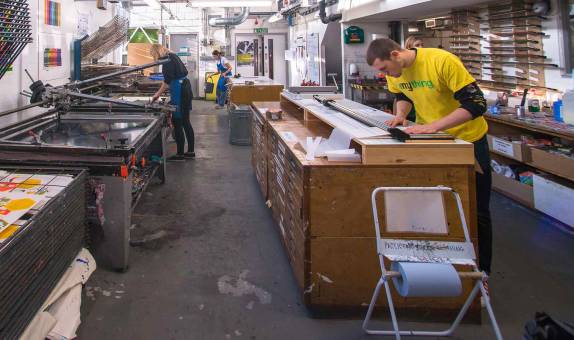Performing Arts Community Engagement (PACE)
As a research group, PACE supports practice-research with a social impact focus. It develops performance-related projects in collaboration with communities, focused on marginalised or socially-disadvantaged groups and individuals. PACE provides platforms for the visibility, self-expression and empowerment of such groups through participation and engagement in self-determined performance activity, knowledge exchange and research.
Researchers within the group investigate questions around embodiment and materiality; affective, somatic and sensory practices; participative and community practices, intersectionality, resistance and the process of performance-making.
PACE's key aims are to:
- Strengthen the relationship between practice research and civic engagement activity
- Be socially responsive
- Develop collaborative practice research that directly benefits the communities involved
- Add value to the student experience and offer development opportunities for current students to gain professional experience
- Offer engagement opportunities for alumni
The PACE Team
- Committee Co-Chairs: Dr Celena Monteiro c.l.monteiro@kingston.ac.uk and Jason Piper j.piper@kingston.ac.uk
- PACE Events Coordinator: Val Marshall v.c.marshall@kingston.ac.uk
Committee representatives from performing arts subjects:
- Drama: Dr Caoimhe Mader McGuinness and Peter Case
- Dance: Dr Daniela Perazzo Domm
- Music: Dr Cynthia Stephens-Himonides
PACE affiliated researchers
- Dr Celena Monteiro
- Dr David Linton
- Dr Caoimhe Mader McGuinness
- Dr Daniela Perazzo Domm
- Dr Beatrice Jarvis
- Dr Hannah Ballou
- Dr Elena Catalano
- Dr Cynthia Stephens-Himonides
PACE's work draws from the expertise within the Performing Arts Team and is now looking further into cross-disciplinary collaborations within KSA. We warmly welcome new project ideas from staff, students, alumni, community leaders and performance practitioners. If you have an idea for a project that you would like to develop with PACE or for more details and updates about projects please email us at pace@kingston.ac.uk or c.l.monteiro@kingston.ac.uk
Current projects
In the period of January to July 2024, PACE is supporting three research projects.
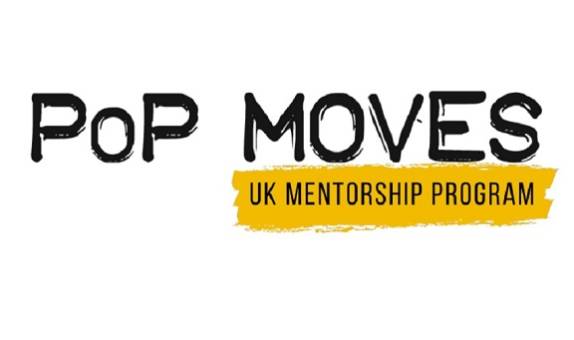
PoPMoves Mentorship Program: May to June 2024

This program is a response to calls from within the PoPMoves community for more mentorship opportunities. We are excited to be launching our pilot program in 2024. Our approach to pairing mentors and mentees is not about age, professional rank, or years of experience, but about creating pairings that match skills-searching-for with skills-offered. The program is part of the PoPMoves overall mission to effect change in the world through popular dance. The Mentorship Program forwards this mission by supporting the popular dance community with compassion and collective care.
Applications for mentors closes on 5 April 2024.
Applications for mentees coming soon.
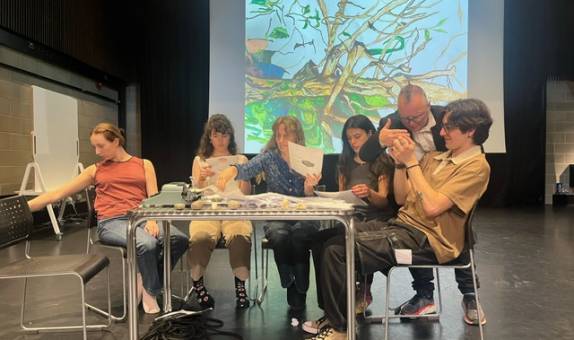
KU Archives 20th Anniversary Project

A collaborative performance/time-based creative response to present to the KU archive's donors on the 7 June 2024 in the Town House and at KSA Live on the Rose Theatre main stage on the 12 June 2024. This project will draw on the expertise of Gabriele Uboldi and Sam Rees, who will lead two workshops on how to bring archival research to life in creative and performative ways, following their own acclaimed performance, Lessons on Revolution, which explored the LSE archives on student protest. These workshops will serve as a springboard for a student-led creation of a piece of performance, drawing on Kingston's own archives which hold fascinating material on a range of subjects, such as:
- Literature through the Iris Murdoch Collections and Wendy Perriam Archive
- Theatre through the Sheridan Morley Theatre Collection, David Heneker Archive, Stephen Sondheim Society Archive and theatre programme collections
- Publishing through the Publishing News Archive and Women's Prize for Fiction Archive
- 20th-century European history through the Vane Ivanovic Library and Archive
- The history of Kingston University and its predecessor bodies
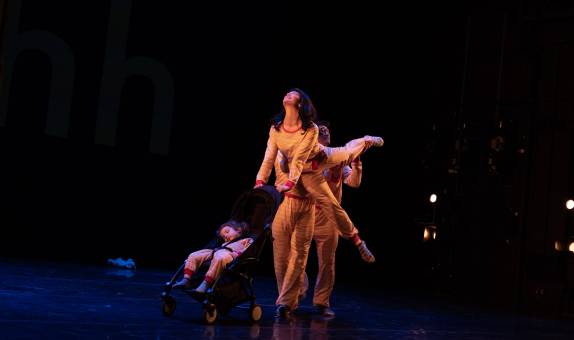
Supporting Live Art Praxis by Hannah Ballou: Shhh

Shhh is a performance praxis investigating the aesthetic consequences of the marginalisation of parents in the performing arts. What does becoming a parent do to one's embodied arts praxis? How could an audience experience this viscerally through deploying the spectacle of liveness of care in the performance frame?
PIPA's research into systemic exclusion of people with caring responsibilities from work and/or opportunities for employment articulates the barriers faced by UK parents in the performing arts and makes institutional recommendations for best practice including a creche for some ‘interviews, auditions and networking events'. (Cornford 2017: 5)
The live performance Shhh advocates for such provisions and more by unapologetically merging the stage with the creche. Lead artist/researcher Hannah Ballou brings her baby to the theatre, attempts to put them to sleep just before curtain, rolls them on stage and crosses her fingers they stay asleep. The audience is then trained to put them back to sleep should they awaken.
The pedagogical output of the research investigates how the methods discovered in the performance praxis can be rolled out to ‘bring your own baby' live art workshops for new parents themed around interruption and unruliness, manifesting inclusive, adult-centred spaces for carers of young children who are at risk of loneliness, isolation, postnatal depression, and the stagnation of their creative practice. The projects aspire to influence a policy pathway toward social cohesion and inclusivity, not just in theatre and performance spaces but in society at large.
The research has manifested significant impact via community engagement with the pedagogical outcomes of the research delivered in partnership with Mothers Who Make, Fitzrovia Chapel, and Live Art Development Agency. Learn more about this at the BYOBaby Live Art Workshop.
Ongoing projects
PACE is supporting ongoing community projects in the local area. These projects will involve discursive events focused on performance and social issues, as well as live and virtual performance and outreach work. These projects aim to empower communities and ignite meaningful relationships amongst community groups and between these groups and the University.
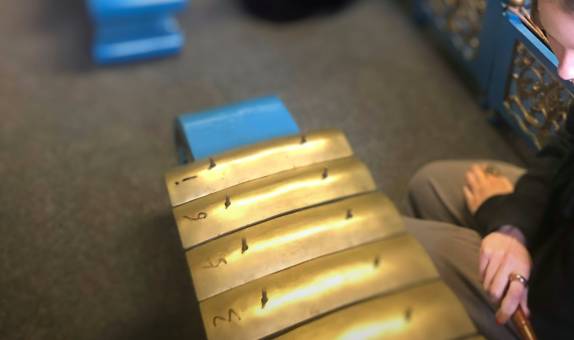
Gamelan Project (ongoing)

This collaborative community engagement project centres on a series of workshops on the Performing Arts Department's (Music) Javanese gamelan ensemble, led by an ethnomusicologist, (Dr Maria Mendonça, from Kenyon College in Ohio, USA) with groups of young people from Anstee Bridge, a local alternative learning programme for young people.
Another strand of the project involves the MA Music Education Course Leader (Dr Cynthia Stephens-Himonides) and her students enrolled in the MA in Music Education programme, who participate in a series of classes with the ethnomusicologist on Javanese gamelan performance and workshop techniques, before assisting with the workshop sessions with the young people.
This research project investigates how inclusive music education can be provided through participatory community music and the impact of this context on both the young people and the intercultural competence development of the MA Music Education students.
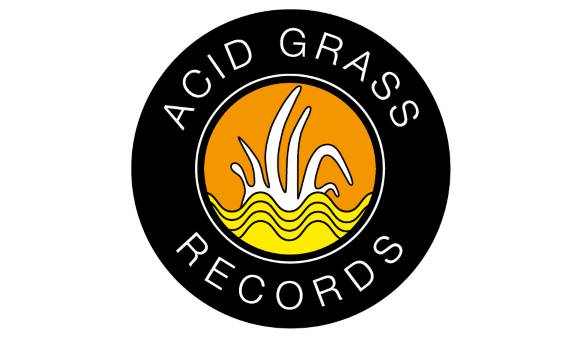
Acid Grass Records

Acid Grass Records is the Visconti Studio's in-house record label and is a student led collective of music producers. The group record, mix and perform original contemporary popular music, with a focus on creative uses of music technology. The name derives from the acid grasslands found close to the Visconti Studio. The students designed their own logo for their record label.
- When do you meet? Wednesday 4–7pm from 6 October
- Where do you meet? The Visconti Studio, Kingston Hill, Kingston KT2 7LB
- How do I register? Email: m.gatt@kingston.ac.uk for further information.
- How much is it? Free
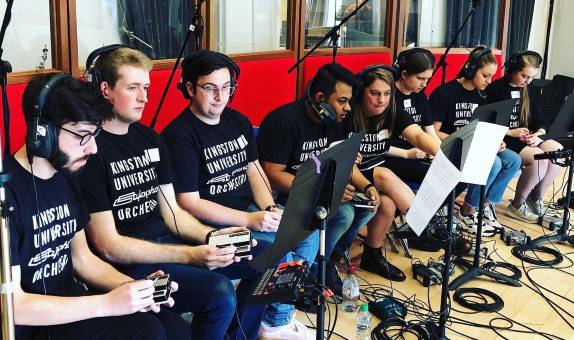
Kingston University Stylophone Orchestra (KUSO)

Kingston University Stylophone Orchestra (KUSO) is sponsored by analogue synth manufacturer Dubreq. Formed in January 2019, to date it is the first and only Stylophone orchestra in the world. They have performed at the International Youth Arts Festival (IYAF) for a Royal audience, the Stanley Picker Gallery and recorded an arrangement of Space Oddity by David Bowie, produced by legend Tony Visconti.
- When do you meet? While COVID-19 measures are in place, we are meeting and collaborating virtually online on an album project which will release in Spring 2021.
- How do I register? Email l.kardos@kingston.ac.uk for further information on how to take part.
- How much is it? Free
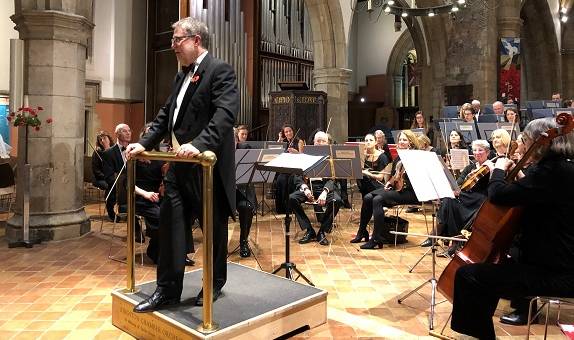
Kingston Chamber Orchestra

The Kingston Chamber Orchestra (KCO) is the University's associate amateur orchestra which meets in the Visconti Studio at Kingston Hill and partners with PACE. It is conducted by Andy Myers. The Orchestra performs locally in Kingston but as an antidote to Covid isolation the Virtual KCA members have recorded their parts on a mobile phone or laptop individually, which was then edited by Andy to produce a short video. The Orchestra's next live concert is on 9 November at Kingston Parish Church.
- When do you meet? Wednesdays 7.30–10pm from 22 September
- Where do you meet? The Visconti Studio, Kingston Hill, Kingston KT2 7LB
- How do I register? Email: pace@kingston.ac.uk or visit the KCO website for the latest information.
Past events
In 2019/20 PACE worked with students, staff, alumni, community members and local community groups to deliver an inclusive and wide-ranging programme of activities through collaborative performing arts projects.
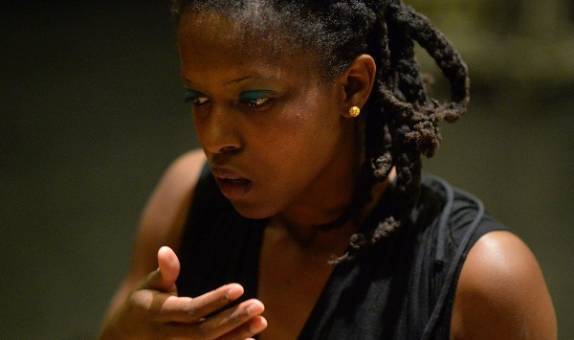
Research Event: Circling Caribbean Dance: A Global Community Discussion (June 2021)

This event took the form of a live discussion between invited popular Caribbean dance practitioners, researchers, producers and educators. Guests shared insights from their experience in the field and discussed pressing topics affecting Caribbean dance communities at the time, including the impact of the pandemic on the sector and Caribbean dance's relationship to decolonial and anti-racist agendas.
The discussion was open to the public to participate as listeners/viewers. In creating this space for exchange, the event worked to support network connectivity between the participants and the development of future relationships and collaborations.
This was a collaborative event with Performing Arts and Community Engagement at Kingston University, London and Pop Moves, an international research group for popular dance and performance.
- Moderator: Professor Donna P. Hope
- Speakers: Kimiko Versatile, Dr Yanique Hume, Brittany Williams, Dr Adanna Kai Jones, Emily Labhart, Dr 'H' Pattern MBE. Further information on the speakers can be found on Eventbrite.
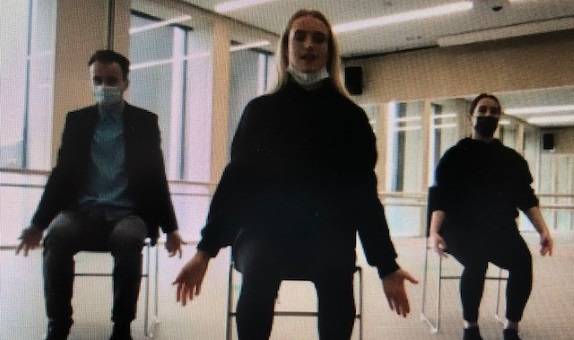
Creative Kingston Connects

This project involved Kingston University's Performing Arts students working with local care homes and Sparko TV, an online channel for elderly people living independently, to provide activities in dance, drama and music via remote online sessions. Three groups of Music, Dance and Drama students organised a total of nine online, interactive performances for elderly people. The sessions were live-streamed and each was tailored to the abilities, memories, and achievements of the people it addressed. The sessions were each highly interactive, inviting the audiences to participate in dance movement, music appreciation, reminiscing, singing, celebration, and meditation:
Musical Stories
Involved rhythm stories, singing stories, and memory stories. Participants sang along to well-known songs such as "Edelweiss" and "Tipperary" and reminisced with music from all over the world.
A Journey of Dance
Involved chair ballet with classical piano music, a dreamy waltz, an up-tempo funk and a gentle meditation to cool-down.
Yesterday Years
Drama students drew on residents' memories of life events, including going to school in the 1940s, the moon landing, and Charles and Diana's royal wedding. It was an opportunity to reminisce, re-live and celebrate personal life events in dramatic form.
The Roseland care home, Sherwood Grange care home, and Sparko TV have all asked PACE to come back and run another series of interactive performances.
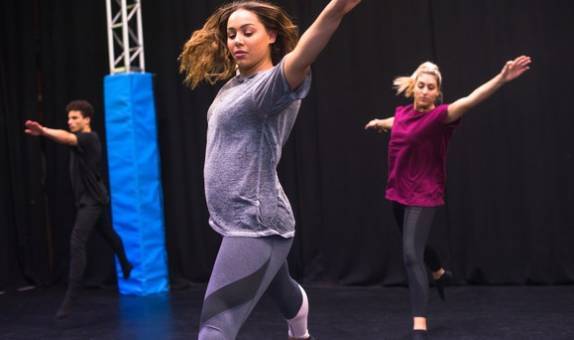
Bodies of Knowledge: Dancehall (2021)

Organised in collaboration with Open Book, this course offered women the opportunity of a critical engagement with popular dance styles through practical dance workshops and contextual discussion sessions.
Dancehall is a popular dance style from Jamaica, initially developed in the late 1970s, which continues to thrive across the globe. This dance style has often been a site of struggle, resistance and empowerment for women who seek out visibility, pleasure and community through the dance practice.
This programme involved feminine dancehall movement workshops with leading dance teacher Jess Baddie. It involved participation in adjacent discussions led by Dr Clare Parfitt, Dr Celena Monteiro and Dr Tia-Monique Uzor focused on specific topics and readings related to the practical dancehall workshops. Topics included areas such as gender and sexuality politics, race, empire, postcolonialism, appropriation and power.
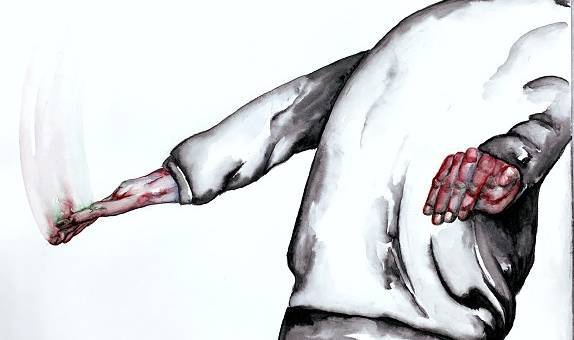
Research Event: Beyond Language: The Communicative Potential of Movement and Sound in Post-war contexts

In this curated conversation, Dr Beatrice Jarvis (Kingston University London) and Grace Schwindt (Goldsmiths College) will come together to explore approaches to healing and resettlement processes. Referring to their professional experience and artistic research, they will investigate the potential of creative and embodied approaches using sound and movement in post-conflict recovery and refugee responses. The conversation will be moderated by Professor Meg Jensen (Kingston University London).
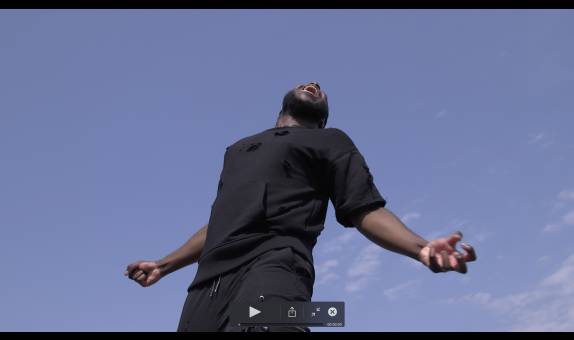
Phoenix Rising – filmed at Townhouse August 2020

This film highlights the skills of Kingston School of Art (KSA) Performing Arts students, performing in the University's new Town House building. Phoenix Rising demonstrates the creativity and diversity of student work being produced in this new building and invites the viewer to follow the story of the performing artists as each move through the Town House. Featuring opera, physical theatre and dance, and working with Film and Fashion students, this film is a genuine collaboration that highlights the great strength of diversity and embodies the spirit of acceptance.
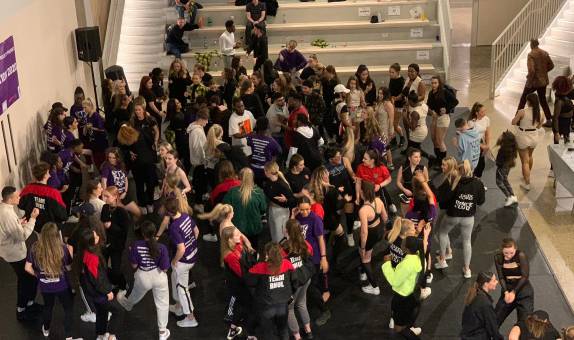
National Dance Competition – Town House – March 2020

PACE partnered with the Kingston University Dance Society (KUDS) which is managed and run by students, for the inaugural Town House event in the Courtyard. 270 participants representing nine universities competed in this National Dance competition, hosted by KUDS. Competitors performed a wide range of styles throughout the day in this iconic space. PACE alumni technicians provided technical support for the event.
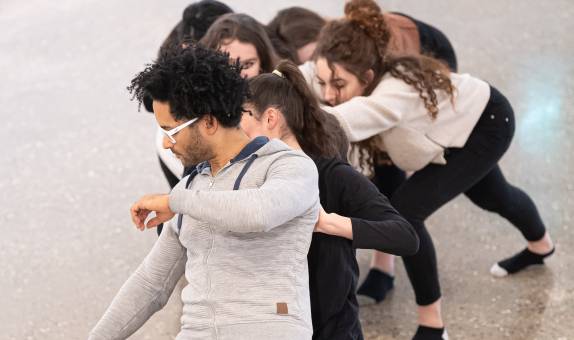
Holocaust Memorial Day – Guildhall, Kingston – February 2020

On 2 February Kingston joined the nation in honouring the victims and survivors of genocides. PACE supported this event, working alongside the Kingston Interfaith Forum, the Royal Borough of Kingston and the Holocaust Memorial Day Trust. Dance, drama and music students closed the programme with a specially selected repertoire, including a beautiful, choreographed dance performance to the Theme from Schindler's List by John Williams, with music provided by students on piano and violin.
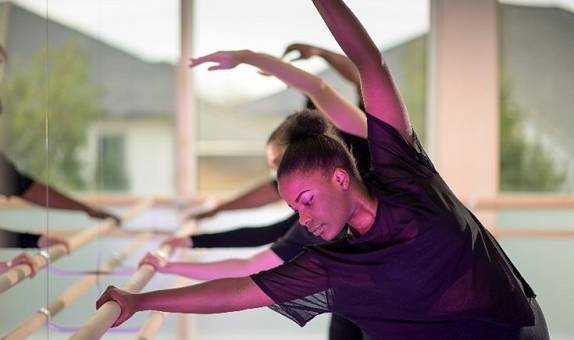
Town House Dance shoot – February 2020

Dance students brought the dance studio space alive at Town House in support of the University's Town House submission for the Royal Institute of British Architects(RIBA) annual awards for the London region, which celebrates the best new architecture across the capital.
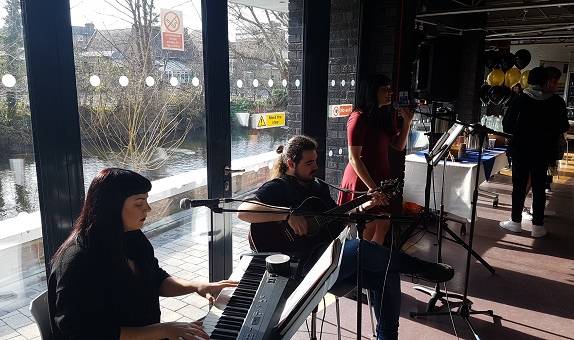
KSA Open House – Opening of the KSA Knights Park extension - February 2020

KSA welcomed visitors from the local community to its Knights Park campus to celebrate the opening of the new Knights Park extension. PACE showcased a performance by dance and music students in the new space throughout the day while visitors toured the facility. Alumni and student technicians provided technical support for the event.
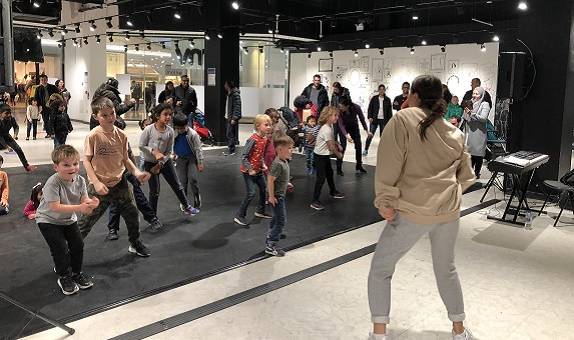
Kingston Can – Bentall Centre – November 2019

PACE worked with Studio KT1 to deliver a range of events for Kingston Can, a project to transform empty space in the Bentall Centre with dance and singing workshops (Bollywood, Hip Hop and One Hour Choir) and a flash mob finale. The project drew on a wide range of groups in the local community, including Sherwood Grange care home, St John's C of E Primary School, and KingsGate, Voices of Hope choirs, who performed alongside students. All groups were visited and rehearsed at their own venues by students who then supported on the day, with the event filmed by KSA film students.
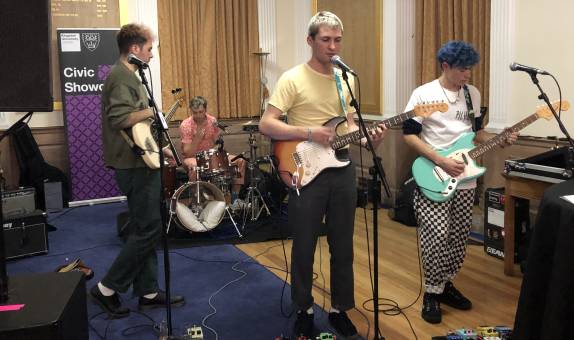
Kingston University Civic Showcase – October 2019

Kingston University invited the local community to its annual public showcase at the Guildhall, Kingston. The PACE stand included a showreel outlining its activities. Dance and music students performed a student-choreographed piece to a full audience and provided additional music performances throughout the event to visitors. Pilhouse, an indie rock band formed by four Music Technology students, closed the event with a rousing set. PACE alumni and student technicians provided technical support for the event.
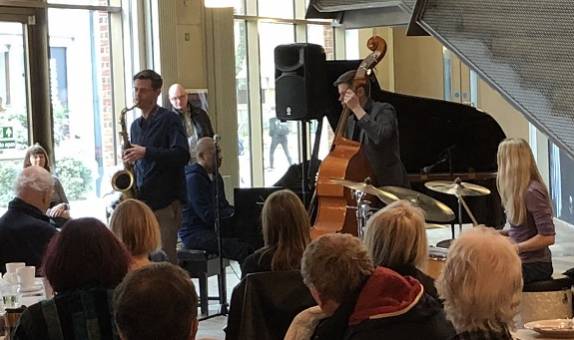
Jazz First Tuesday – The Rose Theatre Cafe

For 10 years, Jazz First Tuesday has delivered its renowned lunchtime cafe concert series in partnership with the Rose Theatre, Kingston. Renowned jazz artists have provided an uplifting musical experience to an audience of dedicated jazz followers, Kingston visitors, and community groups. Andy Panayi, Meredith White, Vasilis Xenopoulos, Dave Jones, Terence Collie and supporting artists contributed to the 2019/20 series.
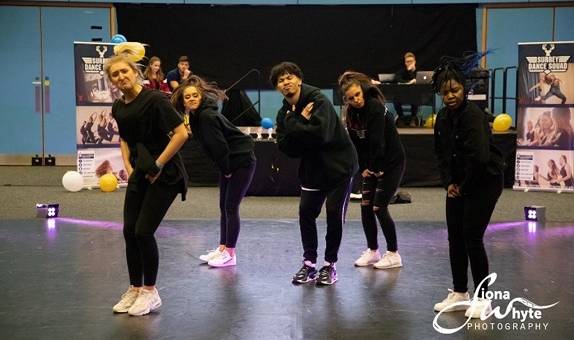
Hip hop and Latin dance workshops

Hip hop and Latin dance workshops, led by students, were opened to the local community through a partnership between PACE and the Kingston University Dance Society (KUSO).
Find out more about the courses we offer
Related programmes
Other programmes from Kingston University that you may be interested in:
Kingston Language Scheme
At Kingston, you will have the opportunity to study a foreign language free of charge. You will get a fully authentic language experience and be taught by highly experienced language teachers, many of whom are native speakers. Modules are taught using a combination of face-to-face and virtual interactive online classes and are available to everyone in the Kingston community.
Kingston Language Scheme (KLS) offers language courses to everybody – Kingston University students, staff and the wider community.
Currently it offers language courses in: Arabic, French, German, Italian, Japanese, Korean, Mandarin, Portuguese, Russian and Spanish.



